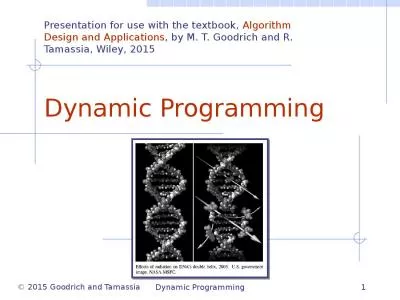PPT-Dynamic C# - A New World of Possibilities
Author : giovanna-bartolotta | Published Date : 2017-01-30
Aaron Erickson Lead Consultant ThoughtWorks Author The Nomadic Developer CoAuthor Professional F coming soon Microsoft MVP C Crazy Shit We Can Do With the Dynamic
Presentation Embed Code
Download Presentation
Download Presentation The PPT/PDF document "Dynamic C# - A New World of Possibilitie..." is the property of its rightful owner. Permission is granted to download and print the materials on this website for personal, non-commercial use only, and to display it on your personal computer provided you do not modify the materials and that you retain all copyright notices contained in the materials. By downloading content from our website, you accept the terms of this agreement.
Dynamic C# - A New World of Possibilities: Transcript
Download Rules Of Document
"Dynamic C# - A New World of Possibilities"The content belongs to its owner. You may download and print it for personal use, without modification, and keep all copyright notices. By downloading, you agree to these terms.
Related Documents














